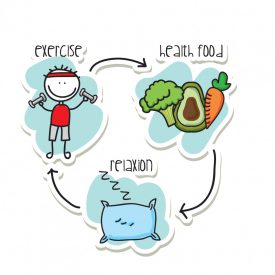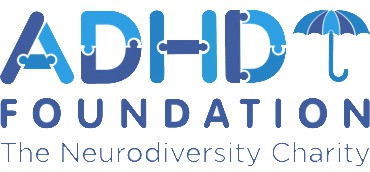 Mental health can affect daily life, relationships, and even physical health. Mental health problems effect about 1 in 10 children and young people. They include depression, anxiety, eating disorders and post-traumatic stress disorder. The emotional wellbeing of children is just as important as their physical health. Things that can help keep children and young people mentally well include:
Mental health can affect daily life, relationships, and even physical health. Mental health problems effect about 1 in 10 children and young people. They include depression, anxiety, eating disorders and post-traumatic stress disorder. The emotional wellbeing of children is just as important as their physical health. Things that can help keep children and young people mentally well include:
- being in good physical health, eating a balanced diet and getting regular exercise
- having time and the freedom to play, indoors and outdoors
- being part of a family that gets along well most of the time
- going to a school that looks after the wellbeing of all its pupils
- taking part in local activities for young people.

Lovely Ryan wanted to share how he explains his stress bucket
It is common for children and young people to feel worried, anxious or upset at times. Common factors and pressures that can affect a young person’s emotional wellbeing include exams, difficulties in families (such as parents getting a divorce), having arguments with friends or boyfriends/girlfriends, and general issues around growing up and being expected to be more independent from your family. These negative feelings will usually pass with support from family and friends. However, if your child remains distressed for a long time, if their negative feelings are stopping them enjoying what they normally enjoy, if their distress is disrupting family life or if they are repeatedly behaving in ways you would not expect at their age, it’s a good idea to get help. For more information and advice regarding our Help and Advice Service, Rotherham Child and Adolescent Mental Health Service, please contact 01709 304808.
Mental Health in Neurodevelopmental Conditions
It is important to know that Autism Spectrum Disorder and Attention Deficit Hyperactivity Disorder itself is not a mental health condition and not every person with a neurodevelopmental disorder will have mental health difficulties.
However, we do know that having a neurodevelopmental disorder’s means that young people are more vulnerable to developing mental health problems. For example they often find it more difficult to understand and manage their feelings, and the feelings of others. They may muddle different emotions, or find it hard to understand what is causing them to feel that way – for example, struggling to work out the trigger for a particular feeling.
Additionally, some struggle to communicate their thoughts and feelings to others and this can cause high levels of anxiety. The child or young person may instead communicate their feelings in a way that it not always instantly understandable to others – for example, when they are stressed/highly aroused they may become more fixated on routine, or engage in repetitive behaviours, as opposed to becoming visibly distressed.
This, alongside sensory sensitivity – under and over – to their environment and social situations, often young people with Autistic Spectrum Disorders can quickly shift from being OK to being utterly overwhelmed by their emotions.
 Over time, children with neurodevelopmental disorders may become frustrated and demoralised because of their symptoms. They may develop feelings of a lack of control over what happens in their environment or become depressed as they experience repeated failures or negative interactions in school, at home, and in other settings. As these negative experiences accumulate, the child with neurodevelopmental disorders may begin to feel discouraged. Typically, in these situations neurodevelopmental symptoms appear first and the depression or anxiety comes later.
Over time, children with neurodevelopmental disorders may become frustrated and demoralised because of their symptoms. They may develop feelings of a lack of control over what happens in their environment or become depressed as they experience repeated failures or negative interactions in school, at home, and in other settings. As these negative experiences accumulate, the child with neurodevelopmental disorders may begin to feel discouraged. Typically, in these situations neurodevelopmental symptoms appear first and the depression or anxiety comes later.
Whilst, some of these struggles are likely to be associated with or heightened by their neurodevelopmental disorder, some mental health problems faced by young people may not be linked to their diagnosis and it is important that this is assessed by a mental health professional where needed.
ADHD Foundation Resources